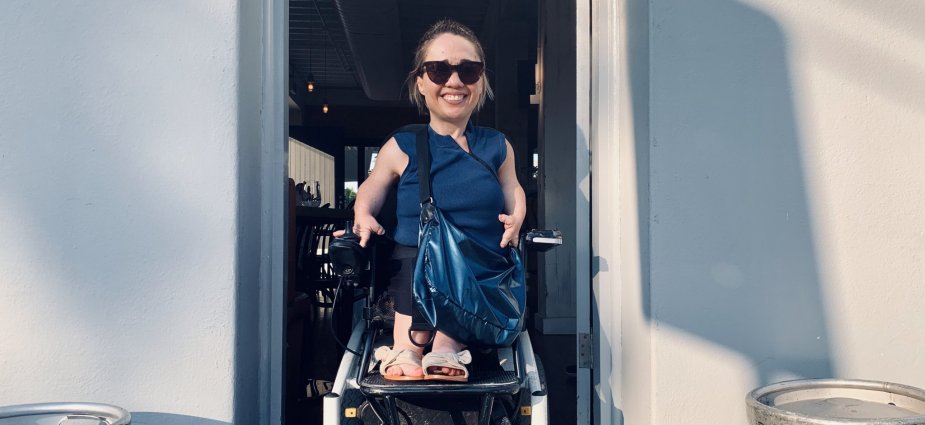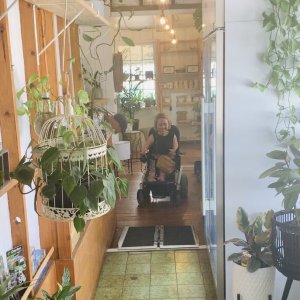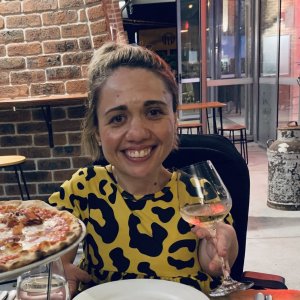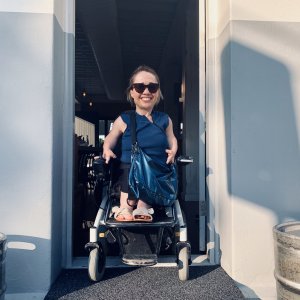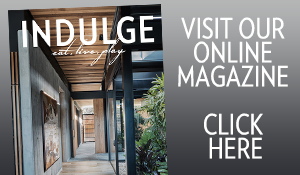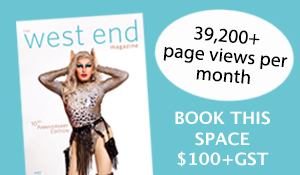As a West Ender for 15 years, Beth O’Brien is a disability advocate making strides on our 4101 peninsula.
Working as a full-time public servant and with a PhD in Social Psychology under her belt, O’Brien is a strong advocate for disabled people — particularly communicating with West End businesses to improve access and inclusion. “Starting local is always a good idea. For me, it’s really not just about where I live, it’s about my home and my community,” O’Brien says.
O’Brien has Diastrophic Dysplasia, a rare congenital condition and form of dwarfism that affects cartilage and bone development. Relying on her electric wheelchair, O’Brien previously did not want to be seen as “the other” or “stand out”. Growing up with no exposure to disabled people in mainstream media, she describes her initial warped concept as: “To be successful, I need to try just to be like everybody else.” However, she is now inspired to remove the barriers disabled people often face — in everyday life, society and at work.
Empowered by tennis paralympian Dylan Alcott’s presence in mainstream media, O’Brien believes people and businesses generally overlook disabled people who have mobility needs. “It’s a lack of exposure of everyday disability. I think people often view disability in two very different ways — either in a real defect model where it’s about people who have had an accident and it’s the worst thing that could happen that they’ve ended up in a wheelchair, or people who are very unwell and need a lot of support. Or, it’s people who are paralympians and are at the height of their sporting prowess. Everyone is important, but I think people don’t have as much awareness of just the everyday disabled person who is trying to navigate the world like everybody else,” O’Brien explains.
Starting locally, the West Ender is most passionate about conversing with businesses to remove the glass ceiling on the disabled. Thanks to O’Brien, the plant shop, All the Green Things and just opened Ehden Bar and Kitchen have now installed a ramp — prioritising access.
Recognised annually with the International Day of People with a Disability, O’Brien envisions a reality where disabled people are ordinarily represented in the mainstream media as presenters, government figures and in high power positions — not just as a feature in a documentary or because individuals are celebrating an accolade. “There needs to be change so businesses are held more accountable when they don’t make access a priority, because I do think that in this day and age, we should be to a point where it is expected that there’s access, rather than that you feel lucky that there’s access,” she explains.
Normalising disabled people and removing toxic stigmas currently plaguing society is the goal. “We have responsibility to make it better for the next generation for people with a disability. It’s not about me. It’s about changing people’s perceptions,” she says. Making headway in 4101, O’Brien hopes that everyone is treated equally, with all areas inclusive and accessible — in West End, Brisbane and elsewhere.
Readers also enjoyed our story on Empowered Wellbeing


